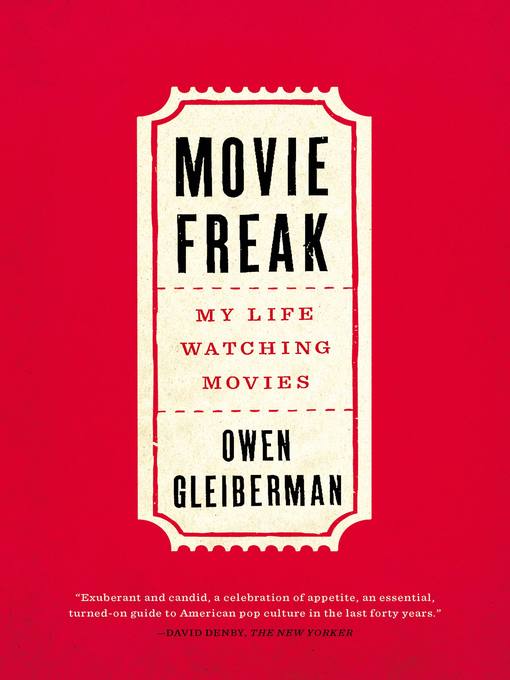
Movie Freak
My Life Watching Movies
کتاب های مرتبط
- اطلاعات
- نقد و بررسی
- دیدگاه کاربران
نقد و بررسی

November 16, 2015
Gleiberman, former film critic for the Boston Phoenix and Entertainment Weekly, often strays from the path in this spry but uneven memoir. His description of losing his “cinematic virginity” at a drive-in showing of Rosemary’s Baby is an endearing passage. The excitement he remembers feeling after seeing Carrie and Nashville for the first time is infectious, as is the thrill when he met his idol, New Yorker critic Pauline Kael. But once Gleiberman starts working at the Phoenix and, later, EW, the narrative devolves into a series of publication turf wars and feuds with a series of editors. There are some valid points about the work of film criticism, such as the importance of going against the mainstream and the critic’s function in marketing, alongside too many observations that read like ax grinding against his former employers. Gleiberman’s recollection of his friendship with Oliver Stone yields little insight, and his descriptions of junkets and film festivals are far too self-involved. When Gleiberman actually writes about movies, his book clicks, but his professional triumphs and travails won’t interest non-devotees of film criticism. Agent: Erin Hosier, Dunow, Carlson & Lerner Literary.

November 15, 2015
A veteran movie critic for Entertainment Weekly debuts with a chronicle of his love affair with films, his long career at EW (before they laid him off in 2014), and his gnarly love life (until his marriage). For much of his life, Gleiberman was fortunate. He was able to spend most of his days doing what he loved: seeing and commenting on the movies. His career received a jump-start when, in his 20s, the redoubtable New Yorker critic Pauline Kael became interested in him and helped him get his first job with the Boston Phoenix. The paper fired him, but not long afterward, EW, a new Time-Life publication, hired him. Gleiberman describes his uncomfortable life with his father--for whom wedding vows of fidelity were only a suggestion--his nerdy social isolation as a film freak, his drug and alcohol use, and his uncomfortable, cringe-inducing confessions about his years at EW as a hustler of young women around the office. He pauses often for commentary about films, directors, and performers he liked (and didn't), is generally kind to his colleagues (not always: Amy Taubin and Peter Travers take some Gleiberman guff), and fiercely defends his dislike for some films that were extraordinarily popular, including Pretty Woman and The Fellowship of the Ring. Throughout, the author's prose style is conversational, even colloquial. At the end, he writes affectingly of the slow disappearance of newspapers and of print film criticism ("the case for why it matters cannot be made in practical terms") and the surge of a kind of mass homogenization of cultural opinion that he finds depressing--and irreversible. Sad, too, is his account of his slow slide at EW, beginning with the elevation of Lisa Schwarzbaum to be his featured equal and ending with the word that the magazine would be moving in a new direction. A story of societal change, rich in cultural as well as personal history.
COPYRIGHT(2015) Kirkus Reviews, ALL RIGHTS RESERVED.

December 1, 2015
What defines a great film critic? For Gleiberman, it is having an insatiable appetite for movies, a keen eye, and an unwavering commitment to one's opinion. In this title, he turns the same critical eye to his own life that he cultivated as lead movie critic at Entertainment Weekly. Gleiberman discovered the transformative power of movies as a child in Ann Arbor, MI. During his college newspaper internship, he wrote a fan letter to famed film critic Pauline Kael that led to a position reviewing films at The Boston Phoenix. While recounting the important movies in his life, Gleiberman shares some of the sharp insights that make him a standout and polarizing figure. However, this book also defines the man in front of the screen, the self-proclaimed "freak," his cold relationship with his late father, an obsession with porn, a stunted love life, and workplace rivalries. In addition, the author provides a front-seat view of the changes that entertainment journalism has suffered as a result of the Internet and the 2008 financial crisis. VERDICT Film and journalism buffs will be equally served by this revealing and ardent memoir of a life lived in images and words.--Amanda Westfall, Emmet O'Neal P.L., Mountain Brook, AL
Copyright 2015 Library Journal, LLC Used with permission.

January 1, 2016
A Michigan kid who saw Rosemary's Baby at a drive-in when he was nine years old, Gleiberman grew up with a serious love for the big screen, although it was, at times, a weird sort of love: for example, he went through a period in the 1970s when he refused to see anything popular, which meant he didn't see Jaws, or The Exorcist, or American Graffiti when they first came out. From his first movie review (on Tommy, the rock opera), through his years writing for various publications, his friendship with legendary movie reviewer Pauline Kael, his tenure at Entertainment Weekly, and beyond, Gleiberman tells us the story of a movie buff who learned to be a critic by learning how to tell people just how thrilling a good movie could be. More than a collection of movie reviews (like Kael's several volumes), but less than a full-range autobiography (like Roger Ebert's Life Itself, 2011), the book offers exactly what it promises: an insightful look at the movies in one man's life. A book for people who love movies, written by a guy who loves them just as much.(Reprinted with permission of Booklist, copyright 2016, American Library Association.)

























دیدگاه کاربران